Last Quarter: Waxings & wanings
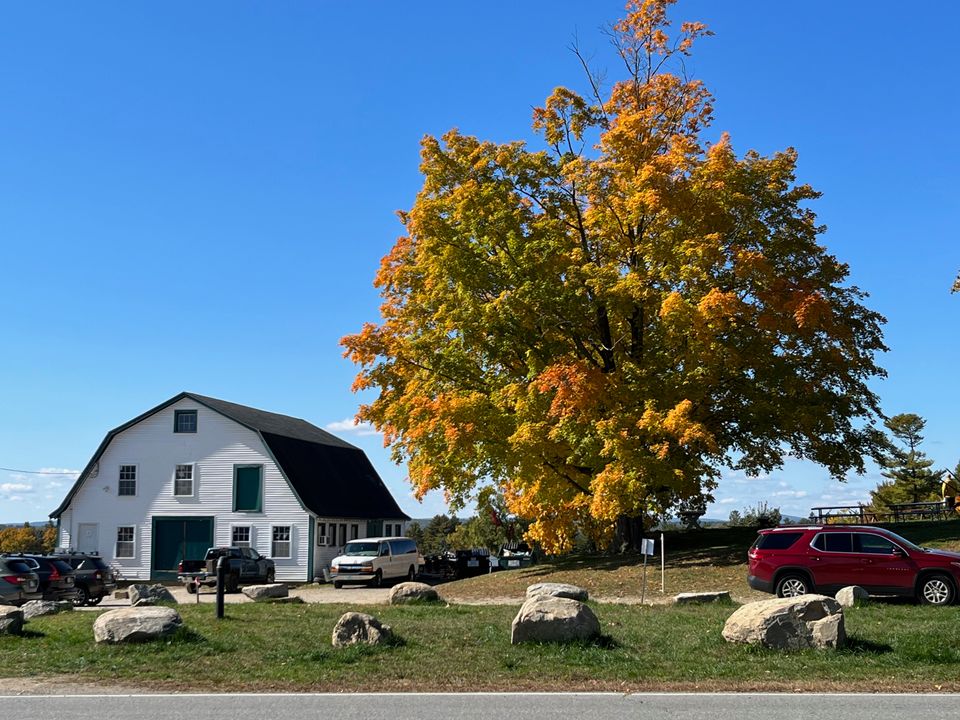
Hello. It's Friday, and the shrinking of the days can be felt with breathtaking speed, evening by evening. We've had an unseasonable, unsettling heat wave this week, but soon a colder front is going to sweep in with rain and, perhaps, the first subtle tastes of autumn.
When I was very young, I used to say that summer was my favorite season because that's when my birthday happened. Then I used to say that autumn was my favorite season because I was in love with its particular aesthetics and it also had my favorite weather. Then I became less sure as I became more conscious of how much my mental health seemed to annually nosedive as daylight underwent such palpable reduction.
Entering Virgo season, I suddenly experience a profound spike in weepy moods and doom-filled thinking; whether you measure autumn from the start of harvest, from the leaf-change and cooler temperatures, or from the equinox, this emotional shift lasts all the way until the start of November. From there, my mind and body seem to find a new equilibrium, but I still have rather low energy and depressive tendencies until late winter. Based on all this, I reached the conclusion that I had some degree of classical seasonal affective disorder (SAD, easily among the silliest acronyms ever created).
But ever since I committed myself more fully to witchcraft and then began deepening my quest for land connection, I have questioned that self-diagnosis. Though without any doubt I've nearly always experienced that seasonal emotional gauntlet, for many years I've increasingly observed that it isn't really a matter of one time of year feeling "bad" and other times feeling good. There are different struggles that arise at different times; every season is hard in its own way. And conversely, the months that I used to consider challenging also have their boons; I look forward to autumn again, after a phase of dreading it.
This post is an attempt to catalogue what effects the waxing and waning of the Sun now seem to have upon me. In doing so, I should note that besides the astrological twelve seasons I alluded to with "Virgo season," I've been convinced recently to really start thinking of eight seasons (not four) in my immediate environment, reflecting the divisions I've long maintained through observing the Wheel of the Year and now also reflecting ongoing decolonial thought-work. An explanation of the latter may come later, as may more precise language for seasonal divisions than what I currently use. For the moment I will speak just of months, and divide them as the seasons that ensue from each spoke on the Wheel of the Year itself.[1]
Late September through October
The great grief. My feelings throw themselves about, every pain rearing its head, every bleakness whispering to me. As winds sweep in and plants wilt in the first frosts, as the hours darken at their very quickest, all is transition and I struggle to come to terms with the change. All the music I want to hear is sorrowful, funereal. I start to crave sugar and fat, in the primordial instinct that drives every creature to build up its reserves against hardship. I cry with very little cause and I lose myself in despairing contemplations. In the alchemy of the dark half of the year, I have entered the first stage, putrefaction. I am dying — the "I" of me is dying — but it isn't a full ego death, rather an ordeal of forty days and forty nights that's just the beginning of that process, wracked by self-pity as my identity keeps trying to cling to its old form.
But as I said above, I have also remembered the ways I thrive in this time. If my psyche is in turmoil, my body — the fuller form of my self — the way I interface with the rest of the world — is nonetheless enriched. The return of brisk, dry, cooler air invigorates me, and I can suddenly spend more time outside, move more without exhaustion. The exercise I can get, at least if I take advantage, feeds back into my mood as a stabilizer: I feel moments of peace and release through preparing the garden and surrounding landscape, through taking more walks, through apple orchard excursions, through walking the ritual spaces of corn maze and haunted house. I am thirsty for sex, rough sex especially. My owner and I return to s/m in our kink. I seek ecstastic experience with all my senses. There's the last trips to the ice cream stand and the drive-in theatre, the first tastes of fresh cider and deep harvest kitchen witchery. I am dying, the "I" in me is dying, but if I ground myself in place and sense and contact and connection, I remember this is merely transformation.
November through mid-December
By now that groundedness has won out, and so I've found the equilibrium I mentioned before. This is a truly strange, queer time. The veil's thinning is felt as a union with what are otherwise the darkest, most uncomfortable parts of the universe. Relations have been renewed with the dead, the violent, the mysterious, the subconscious. I feel the previous season's torments replaced with emotions that are more dynamic than resignation but more harmonious than resistant. It's as if I've given myself over to the bonfire flames, and they burn without consuming; at one moment there is agony and at another moment there is comforting warmth; and I accept it because I know I am in the right place and the right time. Alchemically, this is purification.
In these weeks, I can be solemn, but this is not the same as sad. The music I seek out is not mournful so much as aggressive and transcendent. I struggle to stay awake without caffeine, most of all on the high number of rainy, dreary days — that thin, grey, rain that's contiguous with misty drizzle and thick fog — but I don't lament the lack of sunlight so much as I would at other times of year. This is the heaviest rain-time in the lands I've lived on. It is the way. I think of a snatch of dialogue from, perhaps fittingly, The Addams Family (1991):
"It's a miserable night." "I know, darling. Séance weather."
Late December through January
Serenity persists and suffuses. I become a night creature — not nocturnal in the fullest sense, but expecting and reveling in how the Sun clings golden to the horizon by day, how I can curl within the embrace of home for hours and hours, how the cold becomes an excuse to touch my owner and share our body's energy. The same for stomping, piling, nuzzling cats. I am going through the motions of depression[2] — slow, sedate, sleepy, eating for more than sustenance — but I don't feel as if my mood really needs improving. I've entered the alchemical awakening right as the solstice turns the days to lengthening again. The music that speaks to me is either tranquil or festive, ancient or evoking ancient things, pregnant with wisdom.
There are hard times to this midwinter period. The distinction is that they depend on precisely what the weather does. I love to look at snow and ice, but at this age I've dealt with one too many unpleasant or even harrowing experiences of shoveling, clearing, or trying to drive through those substances; aside from a very quick shovel on a sunny morning, I hate those things now, and when I have no choice but to do them it requires intense psychological preparation. Likewise, my anxiety flares up temporarily during storms, or when there are risks of ice dams and other sources of water intrusion in the home. More often than not, the house I live in isn't ready for losing power, and it doesn't seal out all melting moisture. We can't afford the improvements or investments we need for all of that. I remind myself regularly, though, that I do not hate the season itself; I hate how capitalism impoverishes us and likewise demands that we drive places when we should just stay indoors.
February through mid-March
If the past season brought limited but profound bursts of stress for meteorological reasons, this season feels even worse for that, at least in my region. Now is the snow-time, the storm-time, deadly and destabilizing. Dealing with these things can be trouble because although I've kept up what indoor exercise I can, I still grow physically fatigued rather fast and I don't even have a sugar rush to push me along; though in my still fairly industrial lifestyle I'm not exactly deprived of things to eat, I've long since glutted myself to the point where I don't want to indulge as much. My body wants to shed, to purge, not in a disordered way but still with a certain dedication. The alchemy of the year's dark half is completing itself, and I need to sit in the quiet, open void of possibility.
Balancing this, I've long found that while I rarely look forward to what this season brings with its grueling trials, the return of longer days grants me emotional resilience, and my mind is rousing even if the rest of my body has to catch up. I find myself very much in love — with my owner, with other people, with the Earth, all the forms of love I know. Ideas brew and dreams are dreamed. I listen to music of a mystic, tender bent, and even the songs that are sad feel sweet, uplifting, medicinal.
Late March through April
The great journey. Now I am ready to walk out into the world and see what's becoming of it. As winds sweep in and plants send forth their first buds and shoots, as the hours brighten at their very quickest, all is transition again and I welcome the change as I innocently explore the emergent new order. All the music I want to hear is gentle, kind. I am ready to move and work with my hands in a squat near the thawing ground. I'm in my finest, lightest spirits, and very little fails to fill me with wonderment or joy. I am both unburdened and strong.
Yet this is a mixed blessing. Despite all the ways I've stirred, no matter how much I wish to venture forth I can sometimes be physically waylaid. The arrival of higher pressure systems in the atmosphere plays games with my neurology; this is when my migraines grow most frequent and sometimes severe. They are only rarely debilitating, but I do myself no favors by trying to power through them. It's vital for me to take advantage of my energy on migraineless days, and to more carefully manage the non-barometric stimuli that can also bring migraines on — bright light, sugar, alcohol, poor sleep, stress. In essence, the season when my mental health is most stable has the flip side of the least physical reliability.
May through mid-June
The migraines do not vanish here, and in my bioregion there comes the additional physical discomfort of humidity. That's grown worse as average temperatures have also increased — the weather that properly belongs to what I consider the merry month of May is fleeting, a precious gift that's vastly underrated next to this land's iconic, highly lauded foliage. Now also comes the plague of tree pollen; I used to react more to ragweed roundabout September, but while that allergy still rears its head, over the last few years I've developed a fierce and growing suite of spring allergy responses, and the congestion and clogged ears lead to pressurized fluids throughout my head, which then further leads to dizziness and, of course, more migraines. This is not a comfortable time, and the sudden explosion of demands for outdoor labor do not help.
But for all the days when I feel out of sorts, there are so many when my heart still sings and my flesh is vibrantly alive. The veil's thinned again, and I hum with fairy forces, with the rhythms of fertility. I feel the previous season's potential energy succeeded by a desperate spring fever, rapturous and lusting and magnificently creative. The Sun's fire courses through me and every contact I make with the land, whether with my hands or my eyes, is intoxicating. The music I crave is primal, primordial, ancestral, a furious act of binding myself with the blossoming and greening all around me.
Late June through July
Energy becomes too much. I have nearly forgotten what night is except for an odd, magical time just a couple of hours before I sleep, where fireflies pulse green and I search (often vainly) for the Milky Way. All the light sends my body's systems into overdrive, hyperstimulated, and from this my anxiety erupts. This is surely worse than it used to be, and it will only grow worse as there arise even more things to truly fear in this season. Each midsummer period that I think of as hell has been surpassed the next year. Drought is terrifying; so is rain when there's too much of it, as we had this year. Hot days melt me, in body and mind together. If I might hibernate in winter, now I aestivate or at least shelter in place and drive myself mad with the waiting. I can't eat as much as I ought — all I really want is fruit and vegetables, certainly healthy but not a complete diet — and I can never seem to drink enough even when I try.
It's become hard to think of this season as anything good. Nowadays I consider it the first of two punches. Sometimes I hear of "inverse" seasonal affective disorder and wonder if it applies here — but then it doesn't, not quite. I am not depressed at this time, and it's not mania either, which I don't think I've ever experienced. It's all anxiety here, fears and stresses eroding me like rain on a stone. Perhaps through this season I can still learn gratitude for mercies. Perhaps I can worship rainbows. Perhaps I can find adaptations to make myself into a creature that can survive this season.
August through mid-September
The second punch. I wrote more thoughts on the tortured, troubled iconography of summer here, and last month I also wrote a post for paid readers about how my mood starts its depressive crash somewhere near the end of August, essentially a whole month before I go through the full gauntlet at the upcoming equinox. A repeating theme of my last few Last Quarter writings has been that summer, taken in two parts or as one whole, has always been an uncomfortable time for me, and now it has been tainted further by climate collapse and a concentration of impactful deaths' anniversaries. Given how my annual crash comes right on the heels of my peak anxiety, is it even a crash at all or is it simply a perfect storm of embodied trauma?
I don't know. And yet — once upon a time I did call summer my favorite season. I was very young and the novelty of birthdays meant something. Even in the eco crisis, too, the weather from my birthday onward is also inclined to be beautiful, with fewer heat waves, less humidity, and the storms bringing air that's just the right temperature; the reduction in sunlight lets me grow acquainted with night again. I'm trying to focus on that more, to try not crashing so ferociously. Yes, the darkness is returning, but isn't that a relief of a kind? I've worked hard, journeyed far, and now it's time to go home.
Seasonal affective order
By observing and understanding and embracing the cycle of the Wheel of the Year in my own person as well as in the world around me, I have come to hold a tenet that I think millions of communities have understood throughout history but that only a shrinking number of them still understand today, rebelling against colonial modernism: there is no single personality and emotional profile that we ought to have or even naturally have. We are governed by the seasons as much as anything else is. Seasonal personalities. There isn't even one model for those shifts, as our exact landscape and its relationship with the Sun and Moon affect what seasons exist.
I am all right with this. More than all right — I am delighted by it. On the one hand, it's reasonable to intentionally mitigate something like low vitamin D for improved well-being; even if my skin is particularly good at making vitamin D, I live at the wrong latitude to make it all the time, and under vitamin-making conditions my skin can burn in less than half an hour, so I shelter from the Sun frequently, and at this point I benefit from a vitamin D supplement. On the other hand, though, I've chosen to stop pathologizing the emotional and behavioral changes that I undergo season by season. The changes are part of my body, and my body is part of the Earth.
Seasonal personalities are only pathological in a society that has separated itself from the seasons in the first place. And societies like that are not going to endure much longer.
[1] If any readers might still need a reference point for this, here's what I wrote at the start of August.
[2] At least in the way my depression presents. It's usually of the atypical form, not the melancholic form — crudely, the difference between seeking comfort through food or sex, versus having no desire for those things.
Much shorter than last week. Thank you for reading as always. I'm nearly halfway to breaking even on the monthly operating cost for this newsletter, so if you'd like to help me do so, please consider becoming a paid reader for $1/month (or for existing paid readers, upgrading to the $5/month tier that has extra benefits). Next week: musings on consciousness, with a couple of embedded book reviews. And the week after, I'll finally come back to tree lore for the equinox.
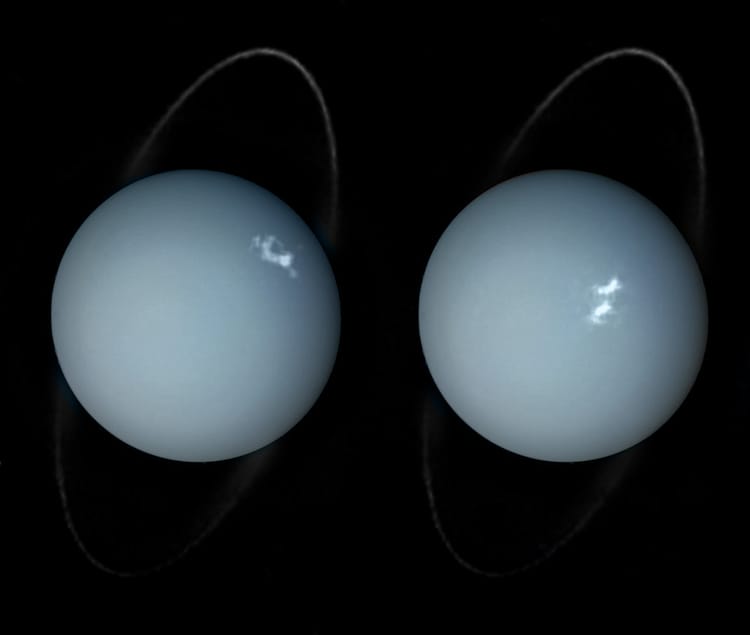
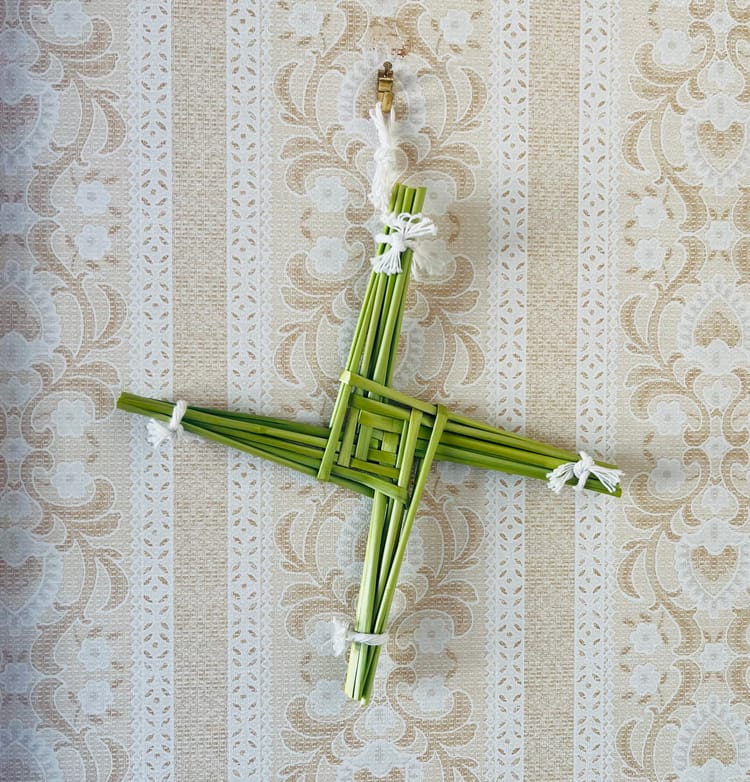
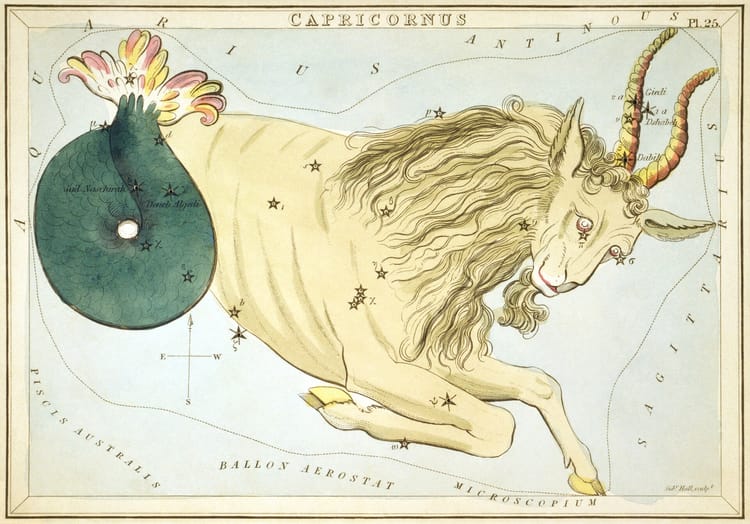
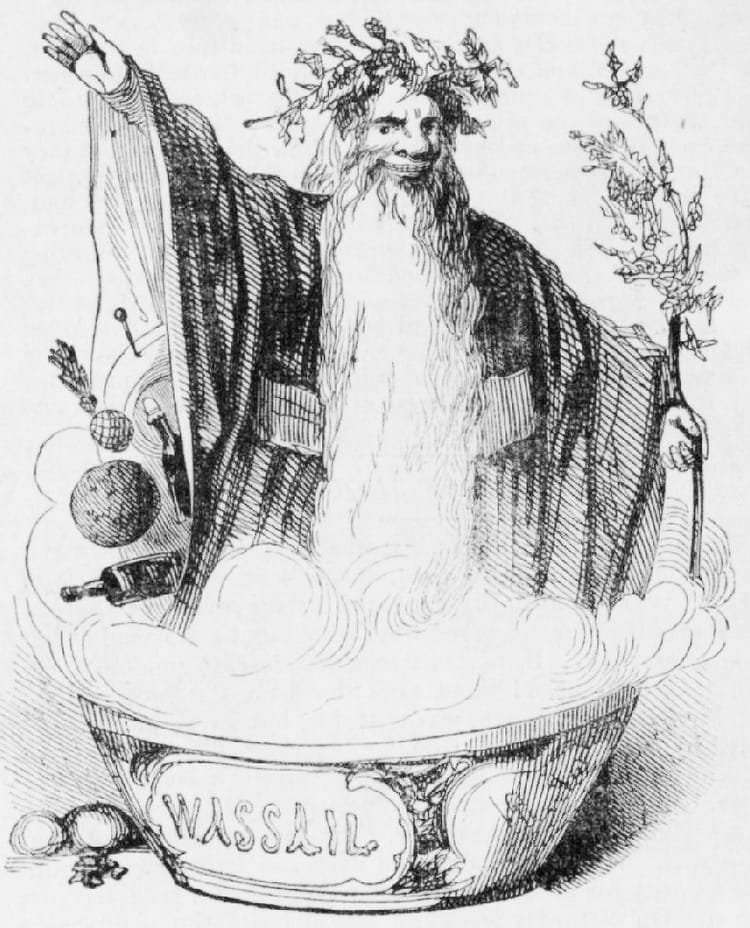
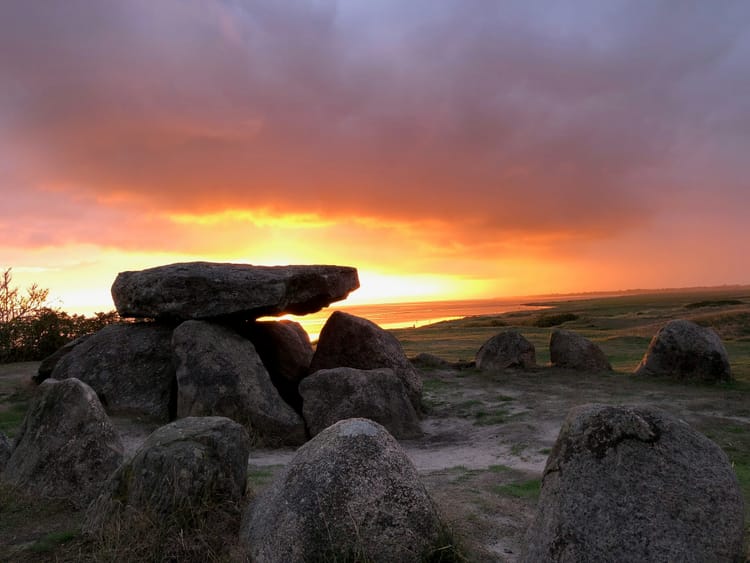
Member discussion